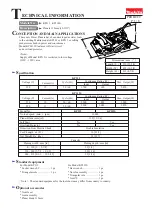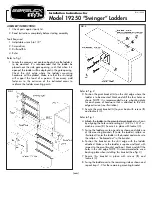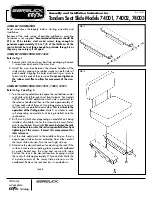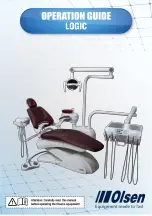
110-509 PSC/EN
38
WARNING: DO NOT USE THE FOLLOWING LIQUIDS:
•
Automotive antifreeze with additives**
•
Hard tap water**
•
Deionized water with a specific resistance > 1 meg ohm
•
Any flammable fluids
•
Concentrations of acids or bases
•
Solutions with halides: chlorides, fluorides, bromides, iodides or sulfur
•
Bleach (Sodium Hypochlorite)
•
Solutions with chromates or chromium salts
•
Glycerine
•
Syltherm fluids
**
At temperatures above 40°C, additives or mineral deposits can adhere to the heater. If deposits are allowed
to build up, the heater may overheat and fail. Higher temperatures and higher concentrations of additives
will hasten deposit build up.
Application Notes
At a fluid's low temperature extreme:
•
The presence of ice or slush adversely affects temperature stability.
•
A viscosity above 10 centistokes adversely affects temperature uniformity.
•
A high fluid viscosity and high pump speed adds heat to the fluid being pumped.
At a fluid's temperature above ambient without refrigeration:
•
If your set point temperature is less than 15°C above the ambient temperature, the
viscosity of the fluid should be 10 centistokes or less to minimize friction heating of the fluid.
•
Heat loss should be encouraged by uncovering the fluid and lowering the pump speed.
At fluid's high temperature extreme:
•
Heat loss from vapor adversely affects temperature stability.
•
To prevent the accumulation of vapors inside the room, the reservoir may need to be
placed in a fume hood.
•
Use a cover and/or floating hollow balls to help prevent heat and vapor loss.
•
Replenish fluid lost from vapor frequently.
www.
GlobalTestSupply
.com
Find Quality Products Online at:





































